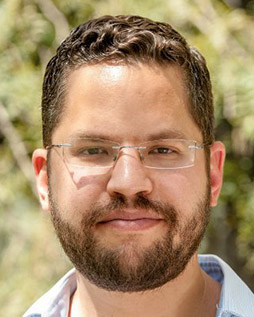
Ori Tenenboim is a researcher, at the University of Texas at Austin. His research interests center on digital journalism, politicaHis research interests center on digital journalism, political communication, and media economics. Tenenboim examines how journalists and news organizations hybridize older and newer behaviors, norms and forms in different political and cultural contexts. He also investigates factors that contribute to different types of user engagement (e.g., commenting and sharing) with news-related content and political messages in the digital media environment. His work has been published in Journalism: Theory, Practice & Criticism, International Journal of Communication, Digital Journalism, and Journalism Practice. Tenenboim previously worked in the Israeli news industry, serving as the head of the news desk and a news editor at “Walla,” a popular website. His last position at “Walla” was editing a mini website that provided political coverage and analysis for the 2013 general elections in Israel.
DJRG Fellow, December 2018
Title and abstract
Co-Constructing Journalistic Knowledge with the Audience: A Case Study of Sustained Reciprocity
By engaging with journalists in the networked media environment, audiences can play a role in shaping the epistemologies of journalism: how journalists know what they know, and communicate knowledge claims. While audiences have been offered opportunities to engage in news-production processes, ongoing reciprocal relationships between journalists and audiences online are rare.
This research presentation will show how sustained reciprocity—mutual exchanges that occur continuously over time (Lewis, Holton, & Coddington, 2014)—takes place in a large-scale WhatsApp group opened by an Israeli journalist/blogger for her audience. Based on a study with Neta Kligler-Vilenchik (Hebrew University of Jerusalem), I will demonstrate how a continuous conversation between the journalist and her loyal audience members across the news-production process allows a continuous co-construction of journalistic knowledge. I will also discuss how such a conversation may help advance news literacy through collective interpretation and evaluation of news-related content. The online space that affords ongoing reciprocal exchanges is termed a meso-newspace, occurring between the private and public realms. The study and the presentation are intended to contribute to understanding how sustained reciprocity can be accomplished and how it can promote shared benefits for journalists and community members.
Selected publications
- Kligler-Vilenchik, N. & Tenenboim, O. (Forthcoming). Sustained journalist-audience reciprocity in a meso-newspace: The case of a journalistic WhatsApp group. New & Media & Society.
- Twitter during the 2014 Gaza-Israel conflict. International Journal of Communication , 11 , 3497–3518. doi:1932–8036/20170005 https://ijoc.org/index.php/ijoc/article/view/6570/2122
- Chyi, H. I. & Tenenboim, O . (2017). Reality check: Multiplatform newspaper readership in the United States, 2007–2015. Journalism Practice , 11 (7), 798–819. doi:10.1080/17512786.2016.1208056 https://www.tandfonline.com/doi/full/10.1080/17512786.2016.1208056
- Manosevitch, I. & Tenenboim, O . (2017). The multifaceted role of user-generated content in news websites: An analytical framework. Digital Journalism , 5 (6), 731–752.doi:10.1080/21670811.2016.1189840 https://www.tandfonline.com/doi/abs/10.1080/21670811.2016.1189840
- Tenenboim, O . & Cohen, A. A. (2015). What prompts users to click and comment: A longitudinal study of online news. Journalism: Theory, Practice & Criticism , 16 (2), 198–217. doi:10.1177/1464884913513996 https://journals.sagepub.com/doi/abs/10.1177/1464884913513996